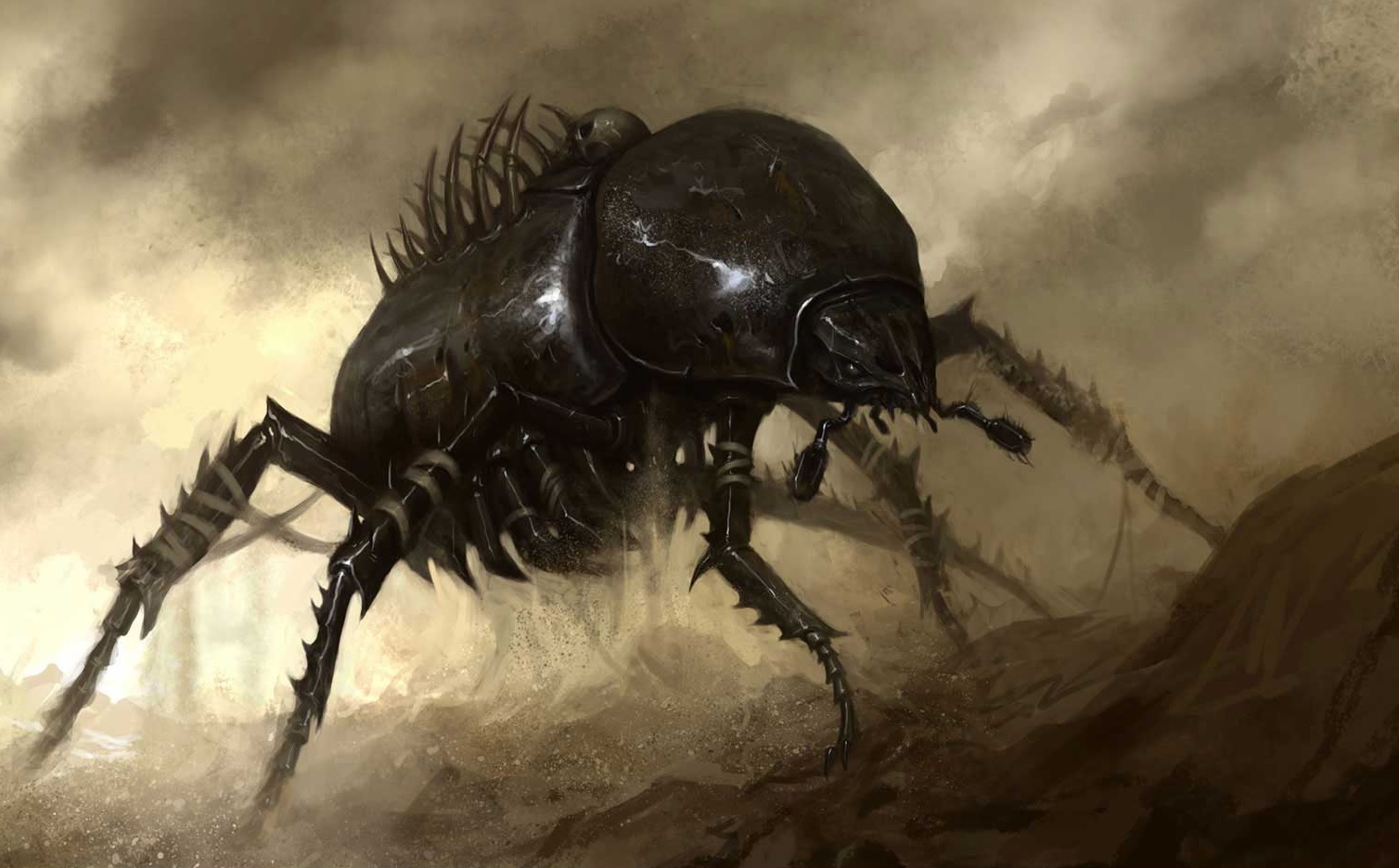Difference between revisions of "Bombadier Beetle (giant)"
Tao alexis (talk | contribs) |
Tao alexis (talk | contribs) |
||
| (3 intermediate revisions by the same user not shown) | |||
| Line 16: | Line 16: | ||
| attack = pincers | | attack = pincers | ||
| dmg = 1–6 | | dmg = 1–6 | ||
| − | | special = [[ | + | | special = [[Acid-based Attacks|acid cloud]], sonic boom |
}} | }} | ||
| Line 27: | Line 27: | ||
<br> | <br> | ||
See [[Bestiary]] | See [[Bestiary]] | ||
| + | |||
| + | [[Category: Sensory Intelligence]] | ||
Latest revision as of 23:59, 29 June 2022
| Species | insect (brachinus gargantua) |
| No. Appearing | 3–12 |
| Behaviour | solitary |
| Range | woodland |
| Size | 4 ft. long |
| Weight | 210 lbs. |
| Intelligence | 0 |
| Armour Class | 4 |
| Hit Dice | 2+2 |
| Action Points | 4 |
| Max. Stride | {{{stride}}} |
| THAC0 | 20 |
| Hp/Die | d8 |
| Attack Forms | pincers |
| Damage | 1–6 |
| Special Attacks | acid cloud, sonic boom |
A ground crawling beetle, defensive in nature, that prefers to scavenge upon rotting flesh or fallen wood. It has been known to find and dig up bodies that have been buried in shallow graves. When feasting, the giant bombardier beetle will defend its food pile aggressively, until it is stunned. Once that happens, the creature will reflexively release a cloud of boiling, superheated acid in a 120-degree arc, centered on the stunning attacker. Following its cloud attack, the bombadier beetle will seek to escape, moving continuously until it is long out of sight before stopping.
The cloud emerges as a liquid gas, causing painful skin burns. The gas will also cause 3-12 damage, plus 1-6 to other bystanders within the arc of fire, to a distance of 3 hexes. Those that suffer 6 or more damage will be unable to wear armour for 1–4 days afterwards. Additionally, the sonic boom of the cloud's release is so intense that anyone within 6 hexes will be made deaf for 1–4 rounds (no saving throw). Spellcasters within 12 hexes will have their concentration broken by this effect.
During chilly weather (30–39°F), the bombadier beetle buries itself in mulch or loam, where it will become dormant until the following spring. If disturbed, it will snap its jaws and flee immediately, without releasing its cloud attack.
See Bestiary
